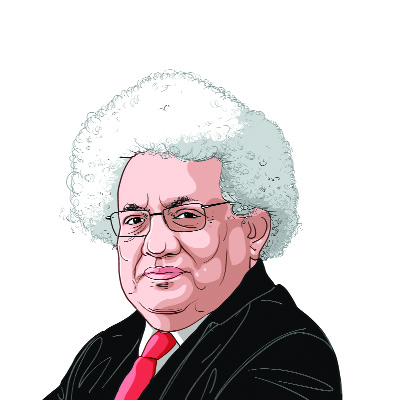Opinion The Two Thousand Days Agenda
The hundred days have gone and are forgotten. But the government has to have an agenda for five years or 1,826 days....
The hundred days have gone and are forgotten. But the government has to have an agenda for five years or 1,826 days. Of course,its present preoccupation is not with the distant future but with the next election. Given the absurd way in which the Westminster system has developed in India,there is always an election around the corner. It is in this climate that every union government begins to think in terms of the next election and employs its gimmicks. It is Maharashtra and Haryana now. Then we will need to start thinking about Bihar in 2011 and UP in 2012. By then there will be a scramble for the 2014 Big Match.
It would be futile to say that elections ought to be harmonised. It wont happen without a major Constitutional reform and that is not on the cards. But what UPA-II can do is get its long run strategic thinking better organised. At present,as far I can see,the Prime Minister is tossing out ideas which represent his long run concerns but there has been little systematic follow up. He highlighted the problem of judicial delay,which can be tackled if someone can think innovatively. The challenge of Naxalites is also something which cannot be met by firefighting. It is entangled with the issue of land rights of the tribals and the failure so far to integrate these tribal areas into the democratic structures. After all why are there not many tribal parties if there are caste parties galore? Land rights are also urgently in need of reform for economic development of the rest of India but the cabinet seems to be running scared of Mamata Banerjee. Given its 200-plus seats,what is the Congress afraid of?
The biggest kite the PM flew when speaking to the CBI was about the effects of corruption on development. There seems to have been no reaction to it whatsoever. But here is a problem which lets down India in international rankings on the ease of doing business and also most concerns its citizens. The Transparency International India reported that the BPL households spend Rs 800-crores plus in a year on bribery. The PM talked of the adverse effects of corruption on growth but the issue needs a much deeper examination.
Corruption is immoral and it is inequitable since it is an undeclared transaction cost for the things which citizens want done in which the Stateat municipal,provincial or federal levelsis in any way involved at all. Bureaucrats can extract their price merely by claiming to follow the rules and holding you up. The bureaucrat has a limited monopoly power to cost you time so that you convert the time cost into a money bribe and settle matters. I consider such petty corruption the worst bane of public life in India having lived all my adult life in a country free of such petty hassles whether I need electricity,water or my garbage collected or summon the police to help me or get my child into school. Indians are resigned to paying up and the more rules are passed no doubt in interest of protecting citizens,the more corruption will thrive.
Of course,the headlines are grabbed by big corruption. Even after liberalisation,ministers have monopoly power either to favour one company over others or to connive in insider trading. They can hold up spectrum allocation or undersell assets. After all we openly talk of ATM ministries. It is difficult for the media or NGOs to expose such corruption because the executive has arbitrary powers to make life hell for the whistleblower.
Corruption is,thus,a disease of governments and the mindset which has prevailed since independence has always regarded government regulation as the answer to all problems. Therein lies the nub of the problem. If the PM is serious about tackling corruption,he will have to start a wide ranging investigation into how laws can be simplified,how executive power can be curbed to prevent it from harassing whistleblowers and how citizens can be enabled to probe into the working of the bureaucrats who after all their servants and not masters. He has 1,720 days left to solve the problem.


